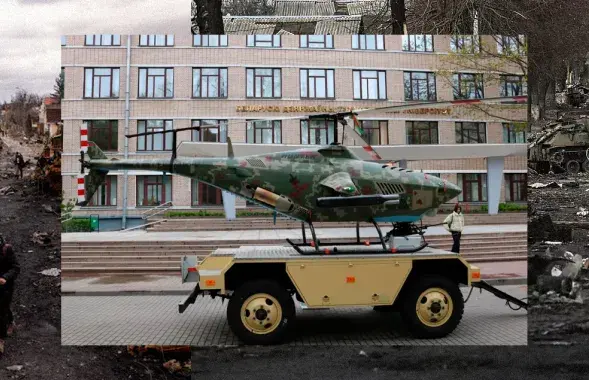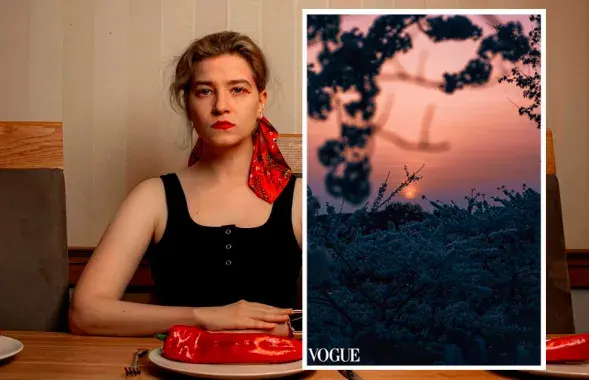Belarusians feel themselves both Soviet and European
Sociology expert Nadzeia Yafimava says that Belarusians is a controversial nation. They are so much different that if they had more temper, they would have punched each other in the face.
There is a certain territory, called Belarus and where people live. How do they differ from the people living on the other territories?
Nadzeia Yafimava: We have just begun a research. The question was as follows: "The national identity of Belarusians: what does unite us and make us a unique nation?" Focus groups were at the first stage. Since it is hard to express national feelings verbally, we asked the participants of the focus groups to choose drawings, collages, photos -- some visual metaphores.
What was the result?
National character and mentality was the major thing in all the focus groups. It means that Belarusians remain Belarusians thanks to their mentality.
What is so special about the Belarusian mentality?
Different from anyone else, Belarusians are able to adapt to any circumstances — not to change the circumstances but to change themselves, to accept these circumstances, to live them naturally, in harmony and even with pleasure.
One of the participants brought a drawing which depicted a girl standing in a room and watching what was happening in there. She explained it as follows:
"I got very much interested in the girl's pose, her appearance and eyes. A Belarusian pose, Belarusian eyes; as if she is trying to say: I am standing here and watching evrything around. I am just standing and evrything is normal -- not bad or good but normal. I asked the host to bring me water, and she brought me coffee twice. I drank it, and so what? Everything is normal. It was a normal coffee, although I wanted water".
The second aspect of the Belarusian character is that a Belarusian holds tight to what he/she has gained. He/she holds on to it with the both hands and becomes united with what was gained. He/she regards the external world with little trust.
At the same time, in the view of Belarusians themselves, they are loved and respected by everyone. People turn to Belarusians for help and support, because they know that a Belarusian will always be responsive and helpful.
To sum up, respondents would most often note the following features: tolerance and a lack of temper. Belarusians are kind, soft, souly, hospitable. They are easy to be ruled; they are hard-working, reserved, not very joily; they are rather pessimistic, stubborn and peaceful...
Does 'a new Belarusian' mean being young or is it a Belarusian of the 21st century?
Yes. First of all, they are young people who exist today and have a prospect in the future.
How can you describe a new Belarusian?
He/she is pro-active, relaxed and free. A new Belarusian is rather inclined to intellectual jobs. He/she earns for living by using brains rather by digging the soil. The young generation has more Belarusian identity than the Soviet generation. They express more intrest in their roots and history.
The new Belarusian identity has an element of the European identity -- to be a Belarusian and a European at the same time.
Is it compulsory to speak Belarusian in order to be a Belarusian?
Usually, a national tounge is regarded as one of the most obvious criteria of the national identity: we speak the same languge and that makes us a nation. But there is no single opinion that language is a sign of the Belarusian identity. There were quite opposite view in this regard.
People have two different approaches regarding the language: cultural and pragmatic. The cultural aspect means that the language is an indisputable national value.
The second aspect is pragmatic. It is connected with the use of the Belarusian language in everyday life. One and the same person says: our langueg is beautiful and I am proud of it, but I don't use it and am not going to use it.
Respondent said that a Belarusian does not need to speak the Belarusian language. It is quite enough that a Belarusian differs by mentality that he/she loves the motherland, the nature and that he/she was born here.
Are we changin at all? Does today's Belarusian differ from a Belarusian ten years ago?
I think we are definitely changing. The factor of the independence and the factor of our own state has changed people in a positive sense. As I said there has been a search for a new Belarusian, a new national character. It is a lengthy process, but gradually new features change the old stereotype and the latter is being destroyed nowadays.
There is a certain territory, called Belarus and where people live. How do they differ from the people living on the other territories?
Nadzeia Yafimava: We have just begun a research. The question was as follows: "The national identity of Belarusians: what does unite us and make us a unique nation?" Focus groups were at the first stage. Since it is hard to express national feelings verbally, we asked the participants of the focus groups to choose drawings, collages, photos -- some visual metaphores.
What was the result?
National character and mentality was the major thing in all the focus groups. It means that Belarusians remain Belarusians thanks to their mentality.
What is so special about the Belarusian mentality?
Different from anyone else, Belarusians are able to adapt to any circumstances — not to change the circumstances but to change themselves, to accept these circumstances, to live them naturally, in harmony and even with pleasure.
One of the participants brought a drawing which depicted a girl standing in a room and watching what was happening in there. She explained it as follows:
"I got very much interested in the girl's pose, her appearance and eyes. A Belarusian pose, Belarusian eyes; as if she is trying to say: I am standing here and watching evrything around. I am just standing and evrything is normal -- not bad or good but normal. I asked the host to bring me water, and she brought me coffee twice. I drank it, and so what? Everything is normal. It was a normal coffee, although I wanted water".
The second aspect of the Belarusian character is that a Belarusian holds tight to what he/she has gained. He/she holds on to it with the both hands and becomes united with what was gained. He/she regards the external world with little trust.
At the same time, in the view of Belarusians themselves, they are loved and respected by everyone. People turn to Belarusians for help and support, because they know that a Belarusian will always be responsive and helpful.
To sum up, respondents would most often note the following features: tolerance and a lack of temper. Belarusians are kind, soft, souly, hospitable. They are easy to be ruled; they are hard-working, reserved, not very joily; they are rather pessimistic, stubborn and peaceful...
Does 'a new Belarusian' mean being young or is it a Belarusian of the 21st century?
Yes. First of all, they are young people who exist today and have a prospect in the future.
How can you describe a new Belarusian?
He/she is pro-active, relaxed and free. A new Belarusian is rather inclined to intellectual jobs. He/she earns for living by using brains rather by digging the soil. The young generation has more Belarusian identity than the Soviet generation. They express more intrest in their roots and history.
The new Belarusian identity has an element of the European identity -- to be a Belarusian and a European at the same time.
Is it compulsory to speak Belarusian in order to be a Belarusian?
Usually, a national tounge is regarded as one of the most obvious criteria of the national identity: we speak the same languge and that makes us a nation. But there is no single opinion that language is a sign of the Belarusian identity. There were quite opposite view in this regard.
People have two different approaches regarding the language: cultural and pragmatic. The cultural aspect means that the language is an indisputable national value.
The second aspect is pragmatic. It is connected with the use of the Belarusian language in everyday life. One and the same person says: our langueg is beautiful and I am proud of it, but I don't use it and am not going to use it.
Respondent said that a Belarusian does not need to speak the Belarusian language. It is quite enough that a Belarusian differs by mentality that he/she loves the motherland, the nature and that he/she was born here.
Are we changin at all? Does today's Belarusian differ from a Belarusian ten years ago?
I think we are definitely changing. The factor of the independence and the factor of our own state has changed people in a positive sense. As I said there has been a search for a new Belarusian, a new national character. It is a lengthy process, but gradually new features change the old stereotype and the latter is being destroyed nowadays.

















